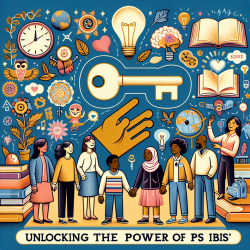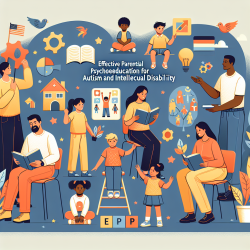Introduction
In a world where data-driven decisions are paramount, the migration experiences of Russian-speaking drug users in Paris offer invaluable insights for practitioners, especially those involved in speech language pathology and child development. The ANRS-Coquelicot study, a comprehensive mixed-method analysis, reveals the sociodemographic profiles, migration trajectories, and drug use practices of this population. While the study primarily focuses on adults, the findings can be extrapolated to improve outcomes for children, particularly those in vulnerable situations.
Understanding the Context
The study highlights the vulnerability of Russian-speaking drug users who have migrated to Paris. Many face a loss of social status, precarious living conditions, and language barriers. Despite these challenges, the study found that access to harm reduction tools significantly reduced their risk of exposure to HIV and HCV infections. This is a testament to the power of providing appropriate resources and support, a principle that can be applied to improving child outcomes in various settings.
Key Findings and Implications for Practitioners
The research underscores the importance of understanding the cultural and contextual factors influencing behavior. For practitioners in speech language pathology, this means recognizing the diverse backgrounds and experiences of children they work with. Here are some actionable insights:
- Comprehensive Care: Just as the study recommends comprehensive care for drug users, children benefit from a holistic approach that considers their social, emotional, and educational needs.
- Access to Resources: Ensuring children have access to necessary resources, such as speech therapy tools and educational materials, can significantly improve outcomes.
- Cultural Sensitivity: Practitioners should be culturally sensitive and aware of the unique challenges faced by children from diverse backgrounds, similar to the study's emphasis on understanding the migration experiences of drug users.
Encouraging Further Research
The ANRS-Coquelicot study is a call to action for practitioners to delve deeper into research that explores the intersection of migration, cultural diversity, and health outcomes. By understanding the broader context, practitioners can develop more effective strategies to support children in achieving their full potential.
Conclusion
The migration experiences of Russian-speaking drug users in Paris provide a unique lens through which we can view and improve child outcomes. By applying the principles of comprehensive care, resource accessibility, and cultural sensitivity, practitioners can make data-driven decisions that lead to positive changes. To read the original research paper, please follow this link: Migration experiences, life conditions, and drug use practices of Russian-speaking drug users who live in Paris: a mixed-method analysis from the ANRS-Coquelicot study.










